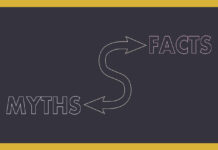[ad_1]
Tright here had been no crossing lights or a gate arm. The panic dysfunction locomotive slammed into me in 1973. And at 19-years-old, the course of my life was eternally modified. So what fuels this runaway practice? Scientists thought they had been shut, till this got here alongside…
’…we’ve discovered a selected mind circuit exterior of the amygdala that’s linked to panic assaults and will encourage new panic dysfunction therapies that differ from present accessible panic dysfunction drugs that sometimes goal the mind’s serotonin system.’
Those that have studied up on their panic dysfunction know the drill.
Our senses ship messages to the amygdala for interpretation. If it senses a menace, and isn’t overruled by the cerebral cortex, it sounds an alarm and all panic hell breaks unfastened.
However wouldn’t it, essential new analysis says, “Not precisely.”
That is big information. Are you prepared?
Salk scientists uncover key mind pathway mediating panic dysfunction signs
Efficient medical interventions don’t seem out of skinny air. With out analysis and deep understanding, it simply doesn’t occur.
For those who get that, the headline needed to have grabbed your consideration.
Researchers on the Salk Institute for Organic Research, La Jolla, California, have discovered a mind circuit of specialised neurons that mediate panic-like signs in mice.
”Come on, Invoice, mice?” Take into accout, there are extraordinary anatomical, genetic, and physiological similarities between people and rodents.
Now, think about the far-reaching affect of making a map of the areas, neurons, and connections within the mind that mediate panic assaults. That’s precisely what the Salk analysis crew has begun to do.
Their findings had been revealed within the journal Nature Neuroscience on January 4, 2024.
The circuit
The mind circuit found by the crew consists of neurons whose major activity is to ship and obtain a neuropeptide – a small protein that sends messages all through the mind – known as pituitary adenylate cyclase-activating polypeptide (PACAP).
And catch this – the crew decided that PACAP, together with the neurons that produce its receptor, are attainable druggable targets for brand new panic dysfunction therapies.
Essential: a druggable goal is a organic goal that’s identified or predicted to bind with excessive affinity to a drug. Moreover, by definition, the binding of the drug to a druggable goal should alter the perform of the goal with a therapeutic profit to the affected person.
Are you able to see how monumental this discovery is?
In response to senior creator and affiliate professor Sung Han…
We’ve been exploring completely different areas of the mind to grasp the place panic assaults begin. Beforehand, we thought the amygdala, often known as the mind’s concern heart, was primarily accountable – however even individuals who have injury to their amygdala can nonetheless expertise panic assaults, so we knew we would have liked to look elsewhere.
Now, we’ve discovered a selected mind circuit exterior of the amygdala that’s linked to panic assaults and will encourage new panic dysfunction therapies that differ from present accessible panic dysfunction drugs that sometimes goal the mind’s serotonin system.
To me, well-considered distinctive approaches deliver nice hope.
Mind mapping

Brainstem
As they started placing their panic dysfunction mind map collectively, it is sensible that the crew first checked out the mind’s alarm heart – the lateral parabrachial nucleus (PBL). It’s situated within the pons, which is a part of the brainstem.
As chances are you’ll know, the brainstem, simply 2.5% of the mind’s weight, is the house of our most simple life-supporting features: regulation of cardiac and respiratory perform, helps management our coronary heart and respiratory charge, regulates our central nervous system, manages our sleep cycle, and extra.
And that’s possible why the PBL was implicated by the crew in producing panic and bringing about emotional and bodily adjustments.
However that’s not all. The crew found that the PBL additionally produces the neuropeptide pituitary adenylate cyclase-activating polypeptide (PACAP), Significance? It’s often known as the grasp regulator of stress responses.
Certain looks as if the crew was in the correct neighborhood. Factor was, although, the hyperlinks between the gamers had been unclear. And that’s why the crew turned to a mouse mannequin to proceed their mapping.
From co-first creator and senior analysis affiliate Sukjae Kang…
Emotional and stress-related behaviors have been related to PACAP-expressing neurons previously. By mimicking panic assaults within the mice, we had been in a position to watch these neurons’ exercise and uncover a singular connection between the PACAP mind circuit and panic dysfunction.
On to the rodents.
The invention


Raphe nuclei as a part of the serotonin pathway
Of their work with mice, the crew discovered that in a panic assault, PACAP-expressing neurons grew to become activated. As soon as activated, they launched PACAP neuropeptide messengers to a different a part of the brainstem known as the dorsal raphe nucleus, the place neurons expressing PACAP receptors reside.
The launched PACAP messengers activate these receptor neurons, thereby producing panic-associated behavioral and bodily signs within the mice.
The crew imagine discovering the connection between panic dysfunction and the PACAP mind circuit was an vital step ahead of their effort to map panic dysfunction within the mind,
The crew additionally discovered that by inhibiting PACAP signaling, they might disrupt the circulation of PACAP neuropeptides and scale back panic signs – a promising discovering for the longer term improvement of panic disorder-specific interventions
The distinction between panic and anxiousness
Let’s wrap issues up with what appears to be a puzzling statement. In response to Dr. Han, regardless of panic dysfunction being categorized as an anxiousness dysfunction, there are lots of ways in which panic and anxiousness are completely different.
As an illustration, panic induces bodily signs, reminiscent of shortness of breath, pounding coronary heart charge, sweating, and nausea. Nervousness doesn’t straight induce these signs. And panic assaults are uncontrollable and sometimes spontaneous, whereas different anxiousness problems, like post-traumatic stress dysfunction (PTSD), are extra memory-based and have predictable triggers.
In response to Han, the variations are why it’s vital to assemble this panic dysfunction mind map, so researchers can create interventions specifically tailor-made to panic dysfunction.
Han summarizes…
We discovered that the exercise of PACAP-producing neurons within the mind’s parabrachial nucleus is inhibited throughout anxiousness situations and traumatic reminiscence occasions – the mouse’s amygdala really straight inhibits these neurons.
As a result of anxiousness appears to be working conversely to the panic mind circuit, it could be attention-grabbing to take a look at the interplay between anxiousness and panic, since we have to clarify now how individuals with anxiousness dysfunction have the next tendency to expertise panic assault.
The crew are enthusiastic about persevering with their exploration.
Comforting and hopeful
Bob Seger nailed it in his track “In opposition to the Wind”: “Want I didn’t know now what I didn’t know then.” However that was the best way it was in 1973 – so go mind illness, analysis, and data.
Through the years, we’ve reviewed loads of analysis right here on Chipur. For my part, this examine is as highly effective because it will get. Certain, it’ll take time to bear fruit, however simply realizing we’re in proper neck of the woods, and the work continues, is reassuring and hopeful.
Take a look at the Salk news release, which features a hyperlink to the examine.
Brainsten picture: Blausen.com workers (2014). “Medical gallery of Blausen Medical 2014”. WikiJournal of Medication 1 (2). DOI:10.15347/wjm/2014.010. ISSN 2002-4436. Creative Commons Attribution 3.0
Raphe nuclei picture: Brain_bulbar_region.svg. No adjustments made. This file is licensed beneath the Creative Commons Attribution 2.5 Generic license.
A lot extra Chipur emotional and psychological well being information and inspiration articles. Peruse the titles.
[ad_2]
Source link








